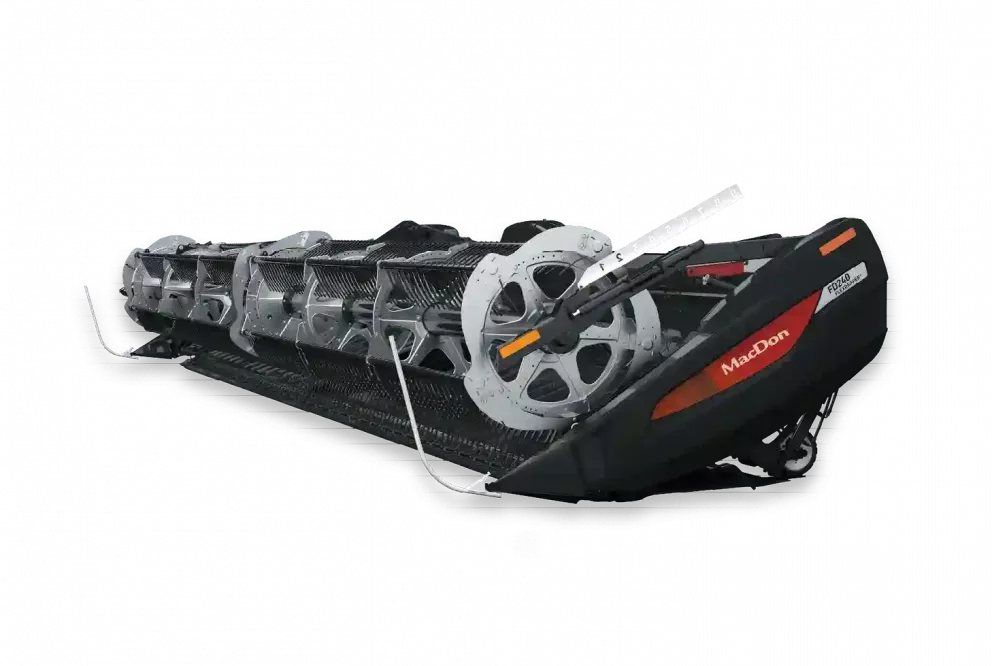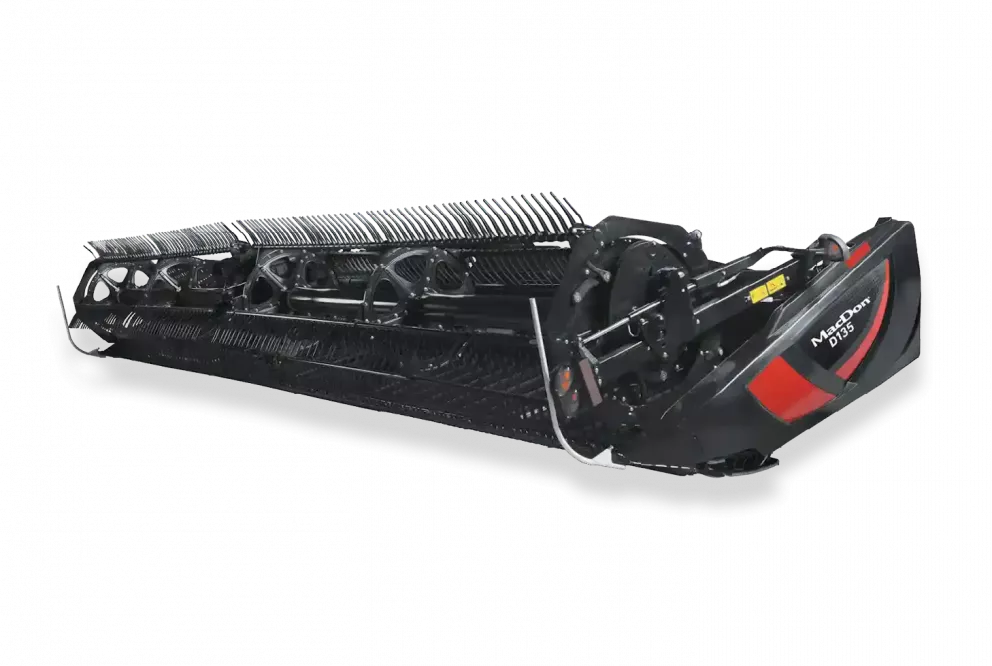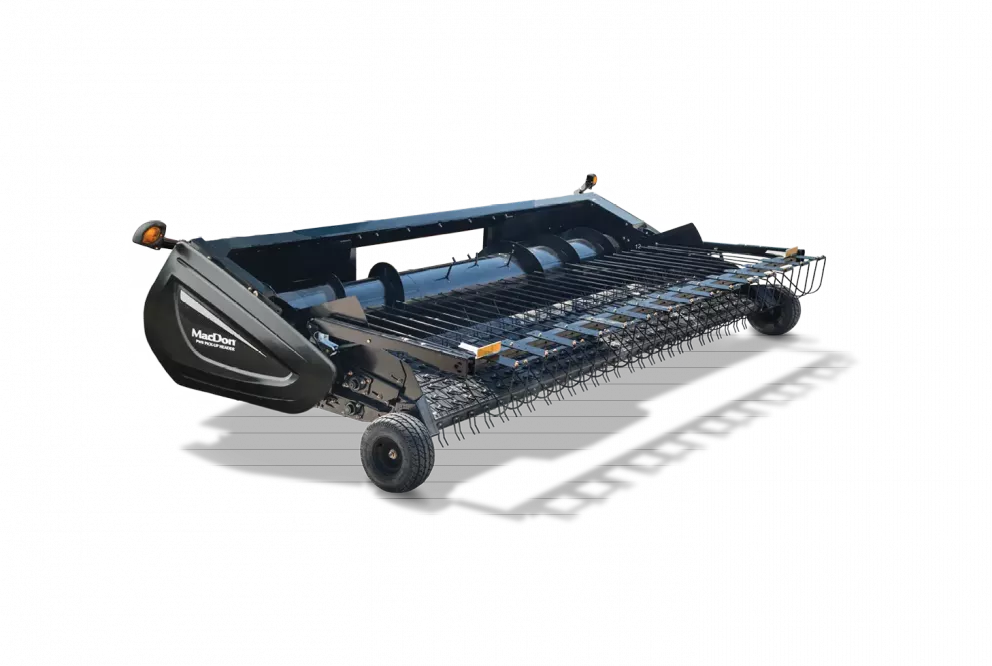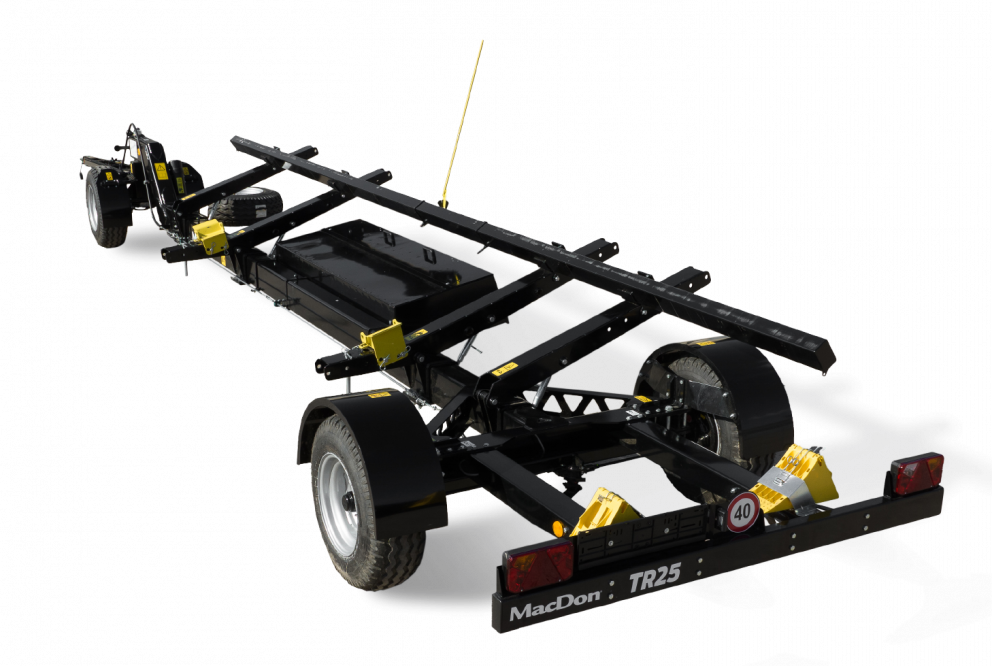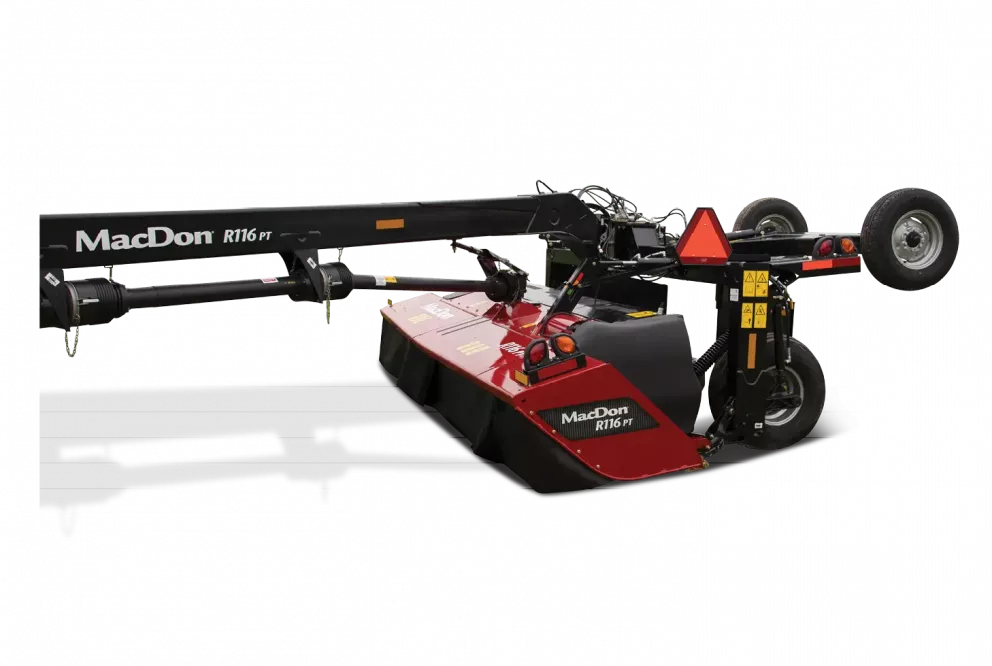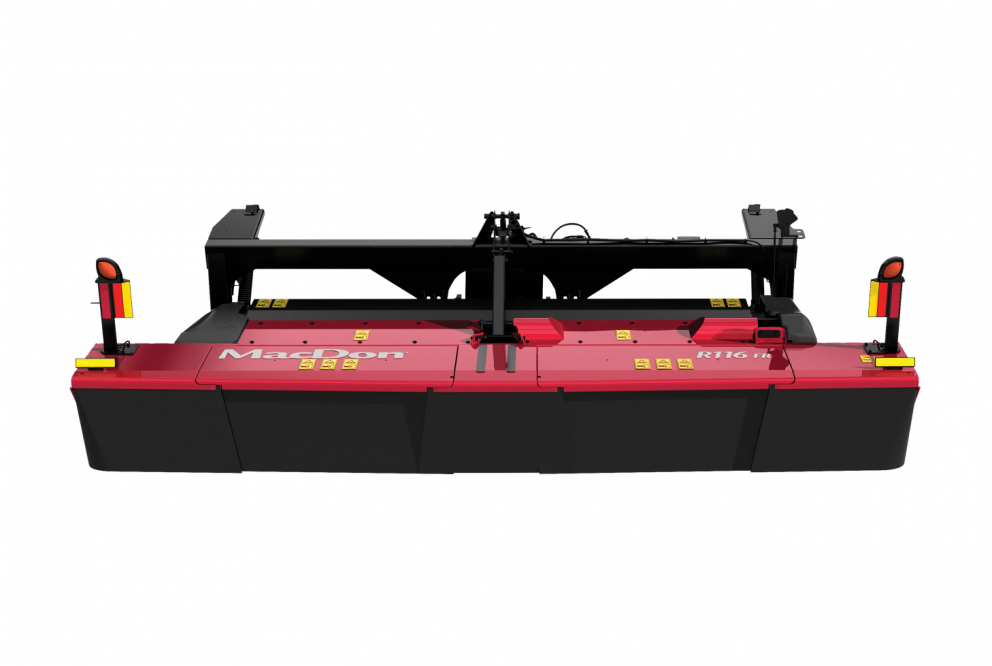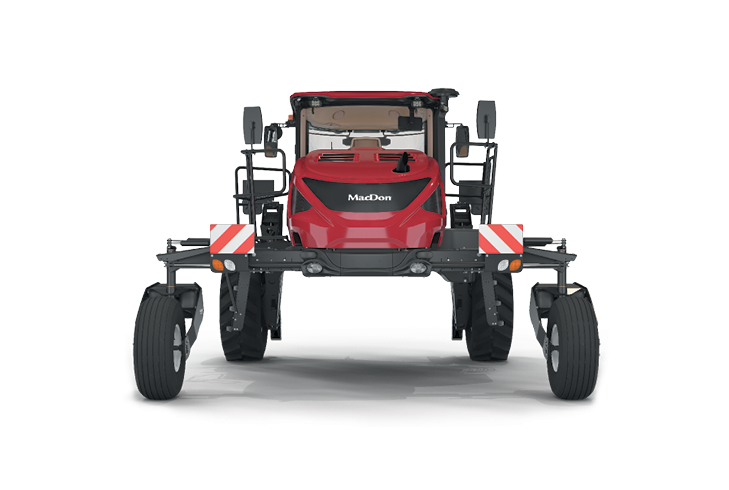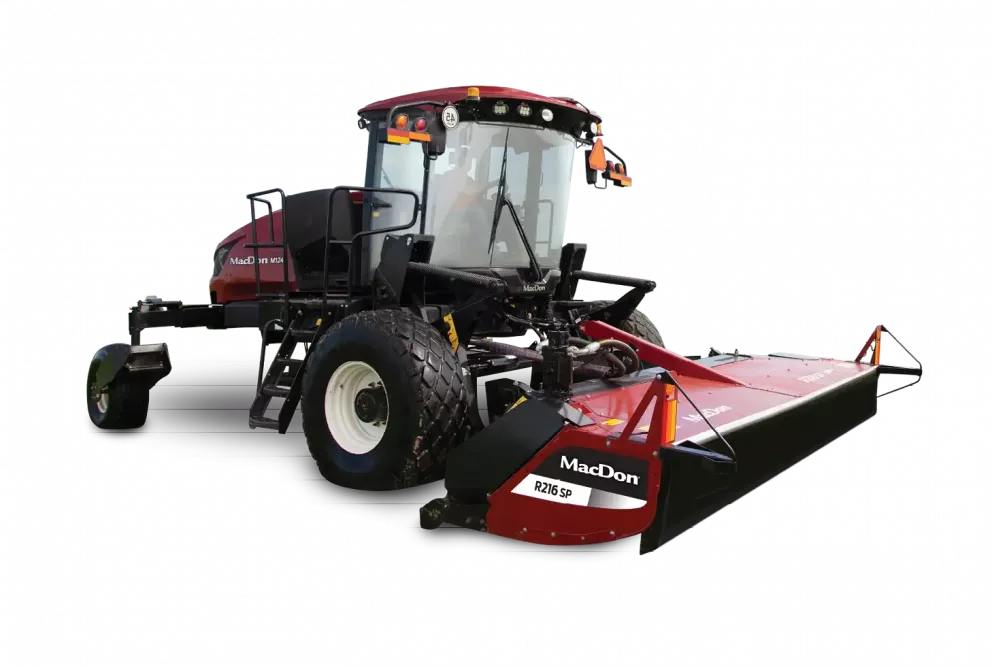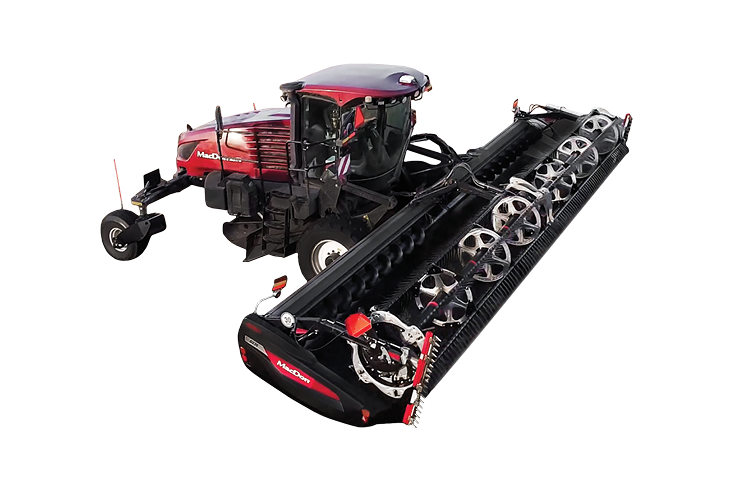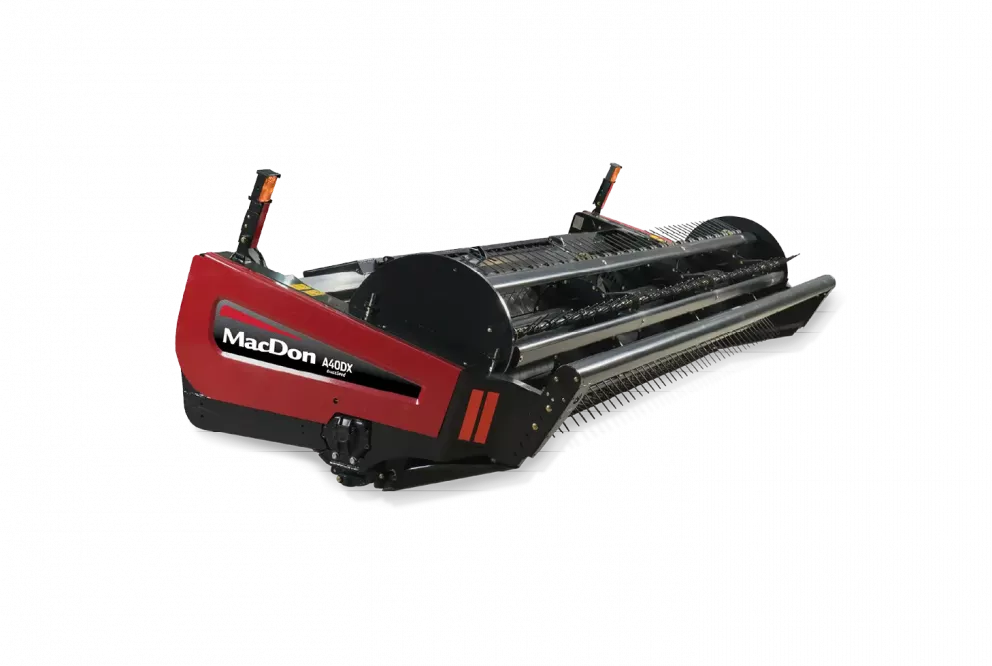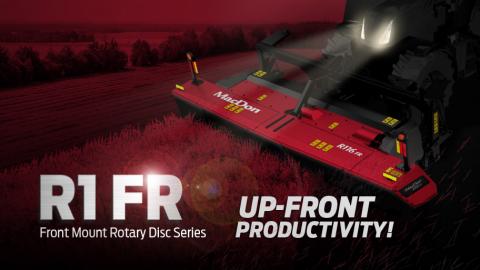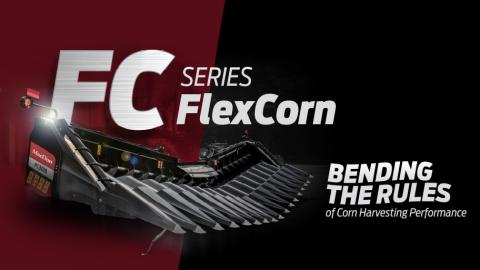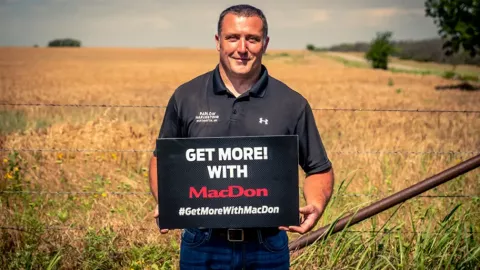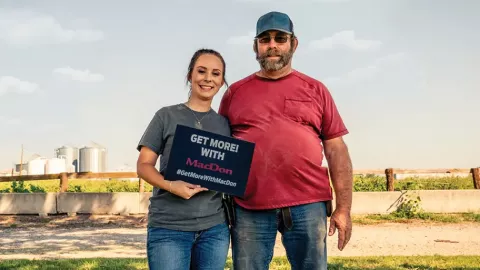Field Level Design Thinking
MacDon Design Engineer and farm kid Andrew Bell has found a rewarding career in the customer focused process that MacDon brings to the field.
Sometimes the smallest thing can have the biggest impact on the course of one’s life. In the case of Design Engineer Andrew Bell, it was not something small, but something downright tiny, that would set him on a path to creating products for MacDon.
The year was 2004 and Bell was in his first year of mechanical engineering at the University of Manitoba. He had entered university pursuing a degree in computer engineering, but had switched to mechanical with the idea of perhaps finding work with a major automotive manufacturer someday. Then, Bell heard about a team that was being formed to enter the ASABE (American Society of Agricultural and Biological Engineers) 1/4 Scale Tractor Student Design Competition.
“It was kind of word of mouth hearing about the team in 2010 and I just joined it,” recalls Bell. “The big draw for me was it was similar to the SAE (Society of Automobile Engineers) type of competition where they build race cars. While that competition is more established with lots of people involved, this one was fairly new so I could just jump right in. What was appealing to me; it wasn’t a race car and more on the ag side of things, but there was more freedom to design at the time.”
The annual ¼ scale tractor contest was created by ASABE to provide students with practical experience working on projects that could better prepare them for careers as professional engineers. Bell says that he enjoyed the competition so much that he also participated in 2011, his graduation year.
“Because you are still in classes, the big challenge with the competition is getting everything done on time in addition to your regular school work. It’s a fair bit of work because you have to do almost everything yourself from scratch. You have to have manufacturing abilities like welding, plus procurement and financing skills to find parts and sponsorships to pay for all the stuff.”
But Bell found that he thrived under the added pressure, and enjoyed being able to work on designing a complete machine from start to finish.
“I really liked the full machine aspect of it. That competition is probably where I really got a taste for design engineering.”
The final piece for Bell’s career path fell into place with him getting a summer job at MacDon as a test technician. Coming from a farm background himself (he grew up on a family farm near Deloraine, Manitoba), the work would spark in him a growing appreciation for the challenges involved in building agricultural equipment.
“When I started into mechanical engineering the thought that I wanted to design cars was always part of it. But the more I got into it the more I understood that if I went to work for a big company like Ford or GM that I would likely get stuck working on only a small part of the final product. Whereas, working at a company like MacDon you get to work on the whole thing, and you’re not just stuck in your own little niche area.”
“The agricultural side of the project also kind of grabbed me because it’s close to home. I felt I understood the customer a bit more than if I was designing products for use in another sector. The pride in your work goes a little bit further when you’ve grown up around the customer.”
Following his graduation in 2011, Bell transitioned his summer work experience into full-time employment at MacDon. Initially, he was tasked with working on a lot of “proof of concept type of stuff,” all of which was eventually abandoned or shelved for a later date. Bell says that his early experience is a common one in the design department.
“At MacDon we are constantly looking at new ideas. I can’t say how many different prototypes we might work on in a given year but we have a whole office of people working on new concepts.”
Eventually, Bell was assigned to the team working on the next generation combine adapter, which would eventually become today’s FM100 Float Module.
“That was kind of a milestone for me to get to work on something that made it to the market and people could buy.”
Bell says that working on the FM100 gave him a front row seat to just how intensive MacDon’s R&D process is.
“In working on the adapter we traveled to various parts of the U.S. to test different prototypes with farmers there, as well as went to Germany a couple of times to test the equipment under the most challenging conditions that we could find.”
Bell says that his R&D work with MacDon has also brought him to places like New Zealand (four times) and even once to Brazil to test a prototype.
“I guess I have seen a decent chunk of the world working here. Getting to the field as much as possible is something that the company has always pushed us to do as designers. I firmly believe, along with many people at MacDon, that most really good ideas come from being in the field and not necessarily the office or shop. Especially if you can be out there with the customer, then it becomes a whole different game.”
THE PRIDE IN YOUR WORK GOES A LITTLE BIT FURTHER WHEN YOU'VE GROWN UP AROUND THE CUSTOMER.
“In fact, we get quite a few of our ideas from the farmers that we test our equipment with, as well as from the dealers we work with. For example, just this last year we finally got around to putting something together based on an idea that a farmer had been pushing us to look at for a while. In the end it didn’t work as well as the customer thought it might, but at least we tried it.”
It’s MacDon’s willingness to try new things that impressed Bell from his very first days working for the company.
“The big thing that really grabbed me when I first started here is that if you have a good idea that has potential to add value for the customer, then we will probably develop it far enough to test it in the field. MacDon doesn’t shut things down quickly. In fact, just the opposite; we’ll build something just to see if it works. It would be hard for me to say for sure, but I suspect that at most other companies you would have to work much harder to justify the investment to get an idea to move forward.”
Beyond MacDon, Bell also draws on his experience on his family’s farm when he thinks about machine design, as both his father and grandfather spent a lot of time rebuilding or adapting older equipment.
“The whole family is not afraid to build things. My grandfather would take old machinery and reconfigure or repurpose it. I don’t know if a lot of his ideas were original to him, but he was featured on an episode of the Inventors Series for the Prairie Farm Report.”
Bell says that what he learned watching his father and grandfather plus his own experience tinkering with the family’s equipment, keeps him focused on designing the best equipment possible.
“MacDon’s number one objective is performance, but if you can also design something to be mechanically simple, that’s a plus because something will always go wrong. Thanks to my experience, either in the field with MacDon or back home, it’s easier to put myself in the shoes of the guy who is going to own the machine I am working on. I know what it is like to be working on a product and start swearing at engineers who put it together. I try not to be one of those guys.”
